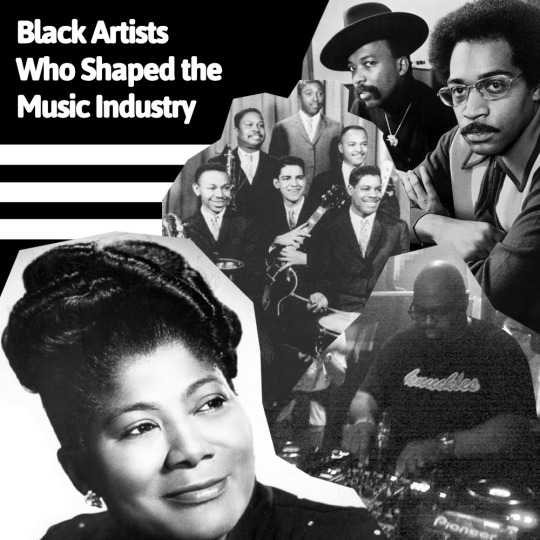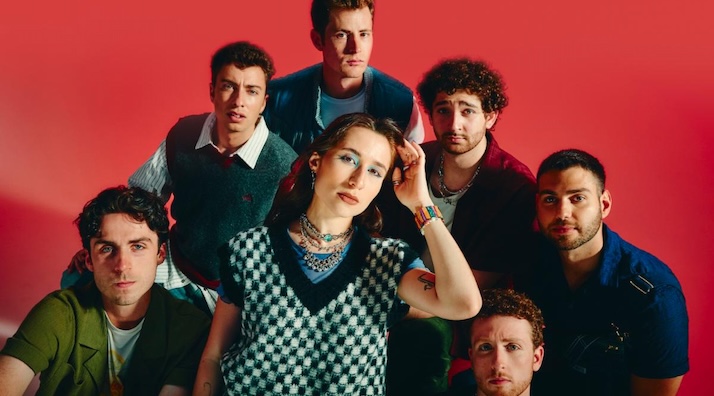The Elevator Encounter That Sparked a New Music Genre

A painting is a collaboration of three things: the canvas, the creators, and the acrylics. If the music industry is a painting, then Black musicians are all three. In honor of Black History Month, we are exploring the legacy of black ingenuity through the decades, highlighting four music pioneers: Mahalia Jackson, The Funk Brothers, Gamble and Huff, and Frankie Knuckles.
Whether you arrive by sheer chance or focused premeditation, one moment can change your life forever. This was the case for Kenneth Gamble and Leon Huff.
It was 1962 in Philadelphia, in an elevator in the Schubert Theatre that Gamble and Huff met for the very first time. Little did they know that this chance encounter would form the basis for one of the most dominant pop and soul producing duos of the early 70s, pave the way for disco, and even shape the early sound of Michael Jackson.
Kenny Gamble was born in Philadelphia where he grew up surrounded by music, recording his first songs at arcade recording booths, delivering coffees for DJs, and even running his own record store before becoming the lead singer of Kenny Gamble and the Romeos. Meanwhile, Leon Huff was born in Camden, New Jersey where he was introduced to the piano by his mother, who played in church. He was in multiple "doo-wop" groups before landing the opportunity to work as a session pianist in New York for top writers and producers.
Upon creating together for the first time, Huff told Music Radar, “The chemistry was spontaneous and magical. Five, six songs came to us in no time at all. We didn't have to think about what we were doing, we just did it...we each knew how to complement the other guy. I played piano and had a good sense of music. Gamble played basic guitar, but he had a terrific way with words and themes."
After discovering they "formed a great team" and shared an identical dream, the two linked up to created a production company, which was set up it in the same building they met. They wrote songs about love, heartbreak, social conscience and family survival. Their first song to hit the top five was The Soul Survivors' biggest hit, "Expressway To Your Heart," effectively putting them on the expressway to becoming one of the most popular songwriter-producers of the late 1960s.
With Jerry Ross, they co-wrote Dee Dee Warwick's, "I'm Gonna Make You Love Me," which was covered by both The Supremes and Temptations. With Jerry Butler, they created "Only The Strong Survive," which was covered by Elvis Presley. As Huff describes it, "That was a big plus for us...Because as a writer, especially a black writer, when a guy like Elvis Presley records one of your songs, that’s got to bring you up a little bit."
In 1971, Gamble and Huff formed Philadelphia International Records, with artists like The O'Jays, Harold Melvin & The Blue Notes, Billy Paul, Teddy Pendergrass, and The Three Degrees. The duo had over 45 top 10 hits and over 40 #1s, like the O'Jays "Love Train" and "Backstabbers," and Billy Paul's "Me and Mrs. Jones." They released on average 13 albums a year. PIR became the second largest black owned label behind Motown and ultimately gained more dominance in the 1970s.
In 1974, the label's house band, MFBS ("Mother Father Brother Sister") hit #1 with the song "T.S.O.P” (The Sound of Philadelphia), which was later used as the theme song for Soul Train. The song's title refers to Gamble and Huff's work, which was identified as "Philly Soul," a genre marked by the intersection of soul serenades, pop melodies, and a rhythm section grounded in funk. James Brown's trombonist, put it best in describing the sound as “putting the bow tie on funk." Along with Bunny Sigler, Gamble and Huff are credited for not only creating Philly Soul, but also for setting the stage for disco.
Their legacy didn't stop there. Gamble and Huff continued their work, producing The Jacksons' first two albums and writing for Aretha Franklin. In 1979, Gamble and Dyana Williams established June as Black Music Month to "promote and protect black music," as Gamble told WBLS Radio in 2014. It not only aligns with Juneteenth but was also a reminder that "when you start to think about the music, you think about our culture."


-1762209023.jpg)